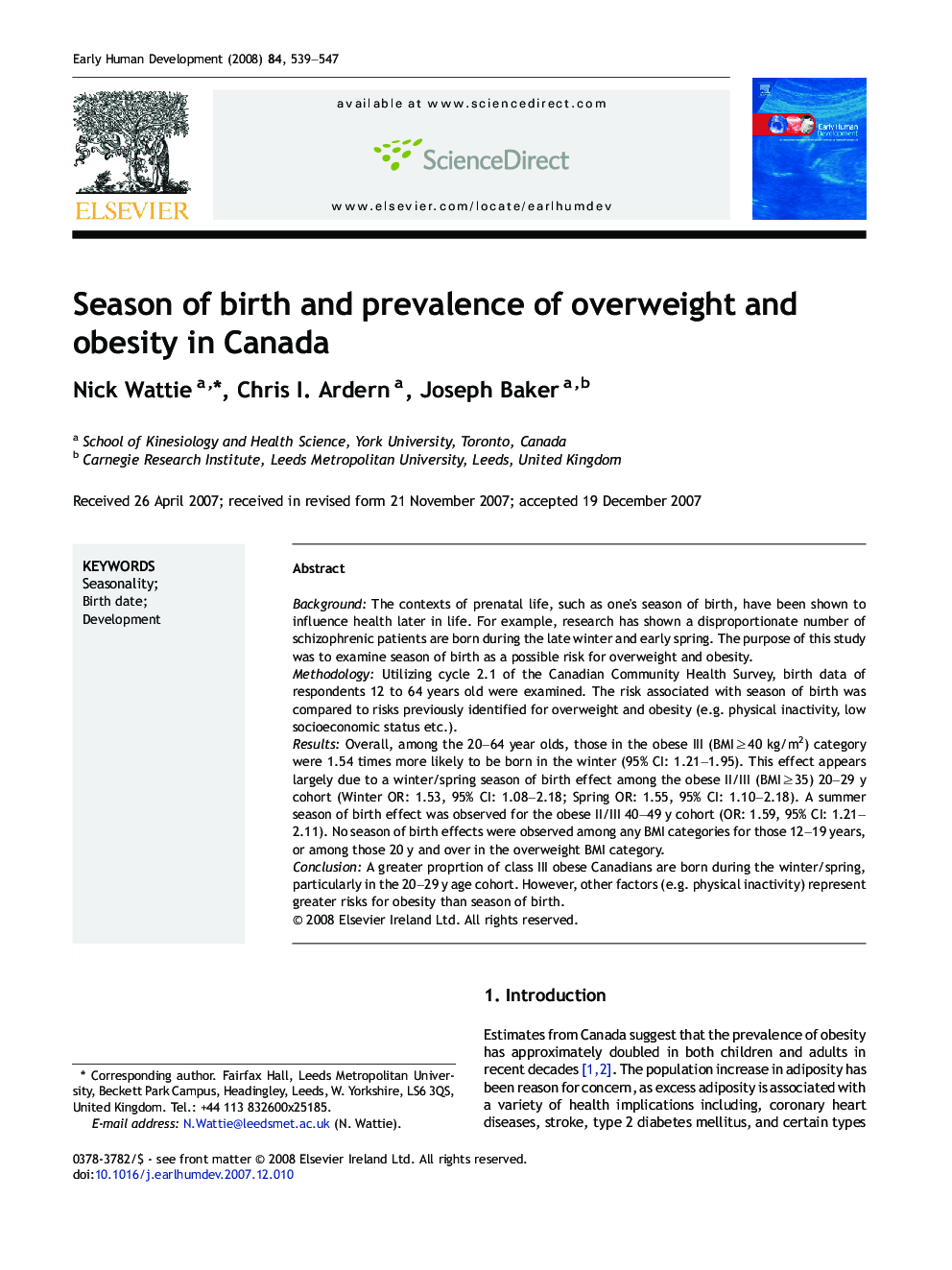| Article ID | Journal | Published Year | Pages | File Type |
|---|---|---|---|---|
| 3918193 | Early Human Development | 2008 | 9 Pages |
Background:The contexts of prenatal life, such as one's season of birth, have been shown to influence health later in life. For example, research has shown a disproportionate number of schizophrenic patients are born during the late winter and early spring. The purpose of this study was to examine season of birth as a possible risk for overweight and obesity.Methodology:Utilizing cycle 2.1 of the Canadian Community Health Survey, birth data of respondents 12 to 64 years old were examined. The risk associated with season of birth was compared to risks previously identified for overweight and obesity (e.g. physical inactivity, low socioeconomic status etc.).Results:Overall, among the 20–64 year olds, those in the obese III (BMI ≥ 40 kg/m2) category were 1.54 times more likely to be born in the winter (95% CI: 1.21–1.95). This effect appears largely due to a winter/spring season of birth effect among the obese II/III (BMI ≥ 35) 20–29 y cohort (Winter OR: 1.53, 95% CI: 1.08–2.18; Spring OR: 1.55, 95% CI: 1.10–2.18). A summer season of birth effect was observed for the obese II/III 40–49 y cohort (OR: 1.59, 95% CI: 1.21–2.11). No season of birth effects were observed among any BMI categories for those 12–19 years, or among those 20 y and over in the overweight BMI category.Conclusion:A greater proprtion of class III obese Canadians are born during the winter/spring, particularly in the 20–29 y age cohort. However, other factors (e.g. physical inactivity) represent greater risks for obesity than season of birth.
